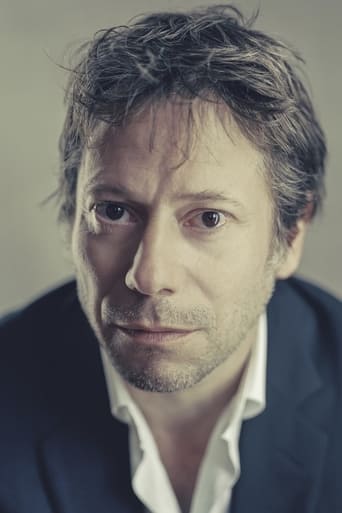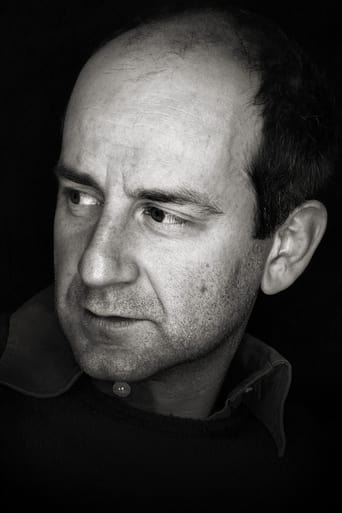Stephan Hammond
It is an exhilarating, distressing, funny and profound film, with one of the more memorable film scores in years,
Cissy Évelyne
It really made me laugh, but for some moments I was tearing up because I could relate so much.
Kinley
This movie feels like it was made purely to piss off people who want good shows
Fleur
Actress is magnificent and exudes a hypnotic screen presence in this affecting drama.
moorek
I started to watch the film after midnight and it was slow. I was sure I'd be asleep soon but the slow pace was matched with constant small pieces of the puzzle being put into place. The acting is good but also fairly monotone but since half the film deals with incidents in police custody and after some terrible deaths - you can see why the people would not be especially expressive.SPOILERS AHEAD. I like that I could not be sure who the murderer was. Some have said they are sure it is one person or the other but I would argue that you can't tell from the film.Julien is often seen as the patsy in the film and I suspect he is. But I also would not put it past him to be the murderer esp seeing his anger when his wife was on the latter. But I think he loved his daughter too much to murder her mother.Delphine, Julien's wife, is a victim but there is something else going on. Much of her behaviour seems typical distant couple but we wonder if she knows of the affair, she seems esp distant in some scenes esp her reasons for not smiling while on the ladder and esp when she reacts so strongly hearing of the death. Makes you wonder if there was not another affair going on.Ester appears to be the person behind the murders as she clearly infatuated with Julien (although the dynamics are not there to explain why). Yet her correspondence with Julien is very casual. Four letters in five months? Cool to him in the drugstore. If nothing else when Julien bangs her head in the magistrate's office - you think that would stop any casual sense of love.Nicholas' mother at one point could easily be the murderer. She had motive and opportunity. We see that at the end of the story very well. Some are sure she is. It wouldn't explain Delphine but Nicholas could have known of the affair, and knowing he didn't have long to live, took his own life so that his wife and her lover would be blamed.Not understanding the French legal system then it is difficult to understand how they were convicted.There was mixed testimony on if Nicholas was even poisoned or not. So if you can't say for sure he was poisoned then was it murder?The discussion of the letters was common yet they didn't exist. At one point his lawyer says "letters that she shays she wrote". There seemed to be much discussion on the interpretation of those yet they didn't exist anymore.After the husband's death and it might or might not be murder then the murder of Delphine is just so obvious. It's clearly murder. It's going to be investigated. Since both of them seemed to feel that others knew of the affair esp the chamber maid then there was no way it wouldn't lead to an re-examination of the husband's death.For Julien the only evidence was that he picked up some homemade jam for his wife, that she normally orders, and dropped it off at the house and returned to work. The fact he was behind the building and was there for "minutes" is silly. We all sometimes get into our car and don't leave. We daydream, listen to a song on the radio, plan our next steps in the day. And if I were going to open and poison a bottle of jam then why would I do that anywhere near people. Also if it was a conspiracy then it is more likely Ester would have poisoned it at work at the drugstore.We often say who has the most motive with any death. In this case the death of the husband and the wife link to a couple having an affair. An affair that seems to be over for months and could be easily proved with testimony of the hotel clerk etc. Yet it seems clear that two people benefited from the death of Nicolas - his wife and his sister. His sister who said in court that she thought her sister-in-law married only for the money. If "everyone" knew of the affair then so did the sister. In fact she would likely be the person told first. So her brother is dying and she will have to share the business with her sister-in-law who was cheating on her brother. So what better way to get back, and working in a drugstore would have the means, then to poison the brother (maybe with his agreement) and then since the jam was with her at the drugstore - the jam. It would be easy to know that only the wife ate that jam so you don't risk poisoning the husband or daughter.In the end it is the sister who benefits all around.
comicman117
The Blue Room is a French crime drama based on a novel of the same name by Georges Simenon and is directed by the lead actor, Mathieu Amalric. The film opens up in what is later revealed to be a flashback where the main character, Julien (played by Amalric), a married man, recalls his sexual experience with a woman (played by Stephanie Cleau) in a hotel room to the police. Julien is being accused of a crime that he doesn't apparently know anything about. As the film continues, and we go further and further into the story, we find out what actually did happen between this man and woman, as well as, the relationship between this man and his wife, eventually leading to a court case.The movie's most interesting elements are its story structure, told in flashback, and its use of its musical score. One of my favorite scenes concerns Julien trying to burn some papers and they slowly vanish into the darkness of the ocean. The way this scene is filmed and framed, being intentionally slow, made it very interesting from a filmmaking standpoint.The musical score is often bombastic, and scenes that aren't really meant to be dramatic carried a melodramatic theme. The score itself goes through different phases, from the very dramatic, to the mysterious, scary and even intimidating. The best use of the score in the film is during a court scene where we see people doing various things all at once. The background piano music fits the theme of this scene particularly well.This film has good acting from its lead actors and lovely cinematography. If you like stories of adultery and crime, you will not be disappointed, however I found that the film wasn't particularly memorable or anything special overall.
westcoastgil
The Blue Room is beautifully acted and Mathieu Amalric delivers another of his cinematographic jewels. First off, I totally disagree with other reviewers claiming this movie to be an offshoot of Fatal Attraction. Second, you'll be watching the wrong movie if your intend is gazing over explicit sex scenes. This is not an erotic movie.This being said - SPOILERS ALERT - Watch the movie first before you continue reading this review.It's the story of two lovers falling into a diabolic trap. We come to know that Julien and Delphine grew up in the same town where they also attended the same school. Delphine was in love with Julien but he never noticed her other that she was taller than him. Eventually, after school, they both went their own ways. Delphine married a doctor but his mother always disapproved the marriage claiming Delphine to be after her sons' money. The mother lives in the same house of her son and Delphine. Delphine runs a pharmacy from that house as well. Julien is married has a daughter and a successful career. Years later....Julien is driving and sees Delphine on the side of the road struggling to replace the flat tire of her car with the spare. They instantly fall for each other. Fast forward.Many in town were aware of the affair and are now convinced that, for obvious reasons, the lovers eliminated their partners. The pretrial proceedings and tabloid lynching results in lawyers, courts and judges to be biased resulting in the two lovers being doomed by the time the trial starts. They clearly are resigned to the outcome of their ordeal but for different reasons. At this point Delphine is totally blinded by her romanticized love for Julien. As for Julien, he's aware that there's no way out and, therefore, indifferent to the trial. At this point, he's also convinced Delphine to be the perpetrator of the killings until, at the very end of the trial, he realizes who the real murderer is. Remember the testimony of the flamboyant red head ?
cyber-butt
The film is disturbing, but is brilliantly and meticulously constructed, with flashbacks and snippets of action, arranged so that bit-by-bit the viewer comes to grasp what has taken place. One theme is the potential for tragic consequences of succumbing to sexual temptation (think "Fatal Attraction").But above all, this is a story of a criminal justice system going horribly wrong. A weak individual, already reeling from a terrible tragedy, is further victimized by the machinations of the prosecution. With no allies and powerless to defend himself from what is happening to him, in the end his life is totally destroyed.






